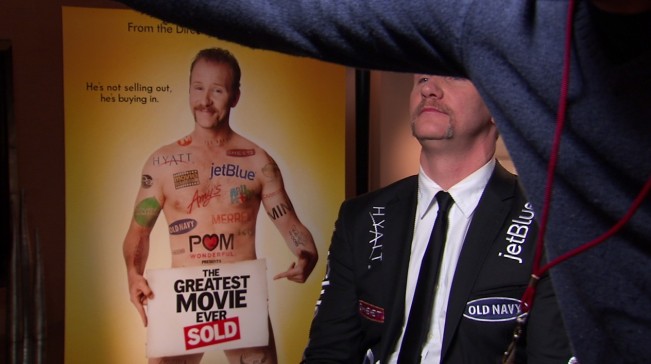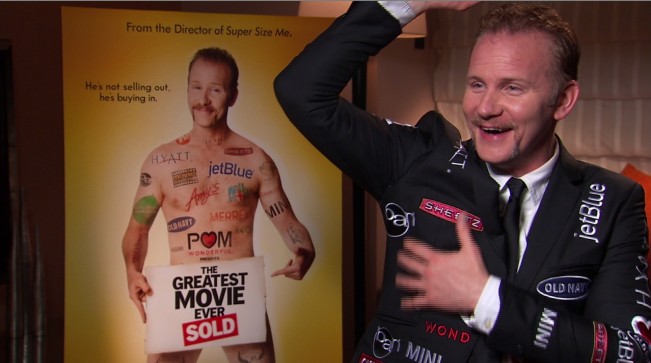Movie City Indie Archive for April, 2011
Orson Welles Tells Jim Henson About “That Whole Squeaking Box Of Dolls”
http://www.youtube.com/watch?v=HX_1yIyfnbU&feature=player_embedded
Ban Is The Greatest Roll-On Featured In POM WONDERFUL PRESENTS THE GREATEST MOVIE EVER SOLD
The Graphic Excess Of Polish Poster Designer Franciszek Starowieyski
 Rick Poyner describes.
Rick Poyner describes.
Sidney Lumet On The “Digital Revolution” (NYFF 2007)
Answering a query from Jamie Stuart.
Dark Skies: Sidney Lumet on NIGHT FALLS ON MANHATTAN (1998)
 Sidney Lumet talked with speed and confidence about his work. Among the times I got to meet him, this conversation was the most enjoyable, from 1998 before the release of Night Falls On Manhattan. My signed copy of his small, fine volume “Making Movies” rests between “The Lubitsch Touch” and “The Passion Of David Lynch.”
Sidney Lumet talked with speed and confidence about his work. Among the times I got to meet him, this conversation was the most enjoyable, from 1998 before the release of Night Falls On Manhattan. My signed copy of his small, fine volume “Making Movies” rests between “The Lubitsch Touch” and “The Passion Of David Lynch.”
THERE’S A STRAIN OF FILM CRITICISM that has always dismissed Sidney Lumet’s work as “theatrical”—describing them as loud, text-driven dramas, with hopped-up performances. But audiences have rewarded Lumet for his best work—Serpico, Dog Day Afternoon, Network—while staying away from sad sacks like The Wiz and A Stranger Among Us. The 72-year-old former Yiddish-theatre child actor’s concern with moral quandaries and social justice has refined itself to the point where his best work is about how complex the notion of social justice is in contemporary society, with his hometown of Manhattan as the proving ground for his theme that the smallest compromise can, and inevitably will, lead to corruption.
In Night Falls on Manhattan—a title that would have meant something romantic, glittering, in another age—Lumet honors another facet of theatricality. There’s a respect for performance and the use of physical space that invests his movie with a kind of lyrical restraint. Andy Garcia plays a young assistant D.A., a second-generation Irish-Latino cop whose father, Ian Holm, is wounded when a stakeout turns bloody. Opportunist D.A. Ron Leibman, marvelous and frothing, sees the perfect public-relations gimmick—Garcia will prosecute the case and avenge his father. Richard Dreyfuss plays a version of the late activist attorney William Kunstler, defending the seemingly indefensible drug dealer who killed several cops in cold blood. Lumet’s filming of the story is honed to its essentials, and at the risk of an oxymoron, the lovely result is filled with moments of lyrical restraint. After winning the case, as Garcia discovers how it actually came together, his crisis of faith is a darkening that must become a deepening or kill him.
“If you’re in it for the hustle, you’ll find a case you really care about and you’ll lose it, it’ll break your heart and you’re damned,” a character says at one point. “If you’re in it because you’re a believer and you have to make a deal, you’ll win it, and that’ll break your heart and you’ll be damned.” Experience is all in Lumet’s world. Theory is laughable. The world waits. It will eat you alive. Unless you care. Unless you understand how moral choices are made, by each and every player in the game.
I had to ask Lumet the same question Garcia asks Dreyfuss’ crusading attorney, “Who appointed you?” Lumet laughs. Why has the New York justice system become the backdrop of his most personal films?
“Well, that’s where I live,” he says in fast, confidential tones. “That’s where I was brought up. That’s the sound I really know. And even though there’s been a general interest in my movies in people being fair to one another, I’ve come to believe that if you have no fair justice system, you have nothing. I do think people’s morality has changed. Twelve Angry Men is almost a romantic idea now. I think it’s getting tougher to find some sort of”—Lumet searches for a word—”equilibrium of fairness. It’s so much tougher to hold onto what you care about, to hold onto your self. You can observe it precisely in the dope world. The reason the corruption keeps increasing is that the stakes are higher and higher. The money is unbelievable. It’s not only police forces that are bought, but entire governments.”
Lumet sees these forces as divisive in more general terms as well. “No doubt more of the country is fragmenting along racial and economic lines,” he says, his hands telling the story in front of him as well. “It’s tougher to hold onto everything. A number of generations haven’t had real crises, like wars or an economic upheaval, so they have the luxury of worrying about other things that are not so fundamental to living. Meeting a mortgage payment is not nearly as fierce a problem as making the rent. There’s no perspective there.”
The visual irony of Night Falls on Manhattan is contained in cinematographer David Watkin’s silky night. This is a great-looking city where the craven details behind selfish actions unravel. Yet Lumet shoots mostly in master shots, sustained takes that take time to cede their meaning. There’s a lovely moment when Garcia confronts Holm in his living room over a detail in his testimony, and the camera watches from some distance. Holm, troubled, walks away, into his kitchen, nearer the camera, into a subtle shaft of light as he struggles with his conscience. Why, I ask Lumet, do you make choices like these?
“It has to do with a basic argument that I’ve got,” he says, eager. “I hate photography that you can see. It all has to be subliminal. Good style is when you can’t tell the style. It’s subtle. For many years, I was attacked as not having any visual style. I had plenty! They just couldn’t see it! To these guys, good visual style was when it looked like a commercial. I pride myself that if you put my pictures next to each other, they’re incredibly different visually. I always look for what look will tell this story best.”
What does the title mean to Lumet? “In a sense, it’s what happens to Andy over the course of the picture. Yet, it is not a proper reflection of the course of the story, because he finds out something about himself. I know it’s a banality, but it really is about the fact that we’re not in control of the results, any of us. Of our lives, of our work. The only thing we control is our own behavior. That’s what Andy’s character finds. No, it ain’t gonna be what he wanted and his career ain’t gonna be what he wanted, but after what he’s seen, he’s going to behave well for the rest of his career.”
Chayefsky On NETWORK On “Dinah Shore”
http://www.youtube.com/watch?v=woV72Ceag8M&feature=player_embedded
What Are The 2 American Movies Lumet Said Are As Close To Perfect As Exist?
An Example of The Peril of Long-Lead Magazine Deadlines
[Michigan & Randolph, Chicago.]
Images of Passengers Traveling on the Paris Métro by Chris Marker [updated]
 ArtDaily reports on the exhibition. At Peter Blum Gallery, a slideshow of 21 of the images.
ArtDaily reports on the exhibition. At Peter Blum Gallery, a slideshow of 21 of the images.
“Some Words About Film Critic Pauline Kael, Who Died Yesterday”
Woody’s gentle rebuke washed away.
[Via TNR and @thedailyMUBI.]
Ian McKellen Fronts The Fleshtones With Shakespeare’s Sonnet 20 At Warhol’s Factory (1987)
http://www.youtube.com/watch?v=YtZadebVKHw&feature=player_embedded
“For as long as humans live and breathe upon the earth, for as long as there are seeing eyes on the eart.” McKellen walks away but does not look away. “Broadcast on MTV as part of the last episode of ‘Andy Warhol’s Fifteen Minutes’,” notes Marc Campbell. (Nice lapel musical note.)
















